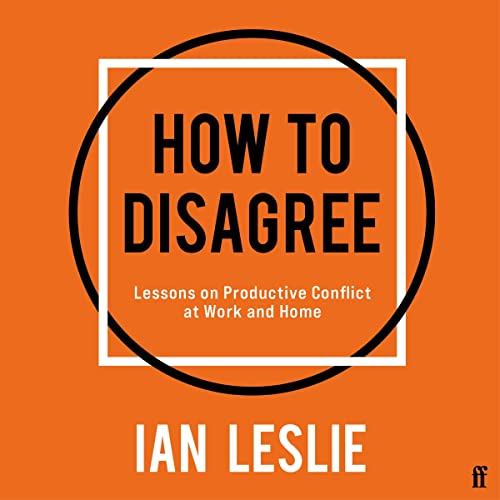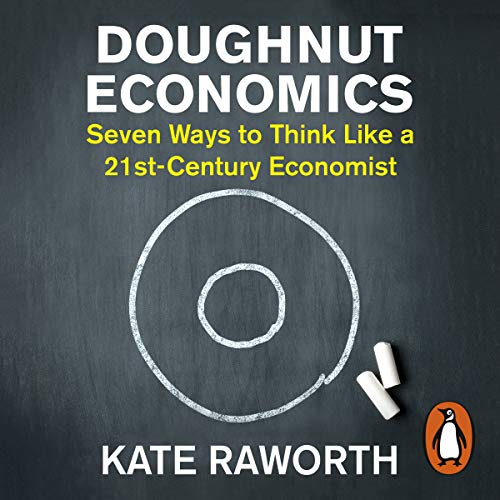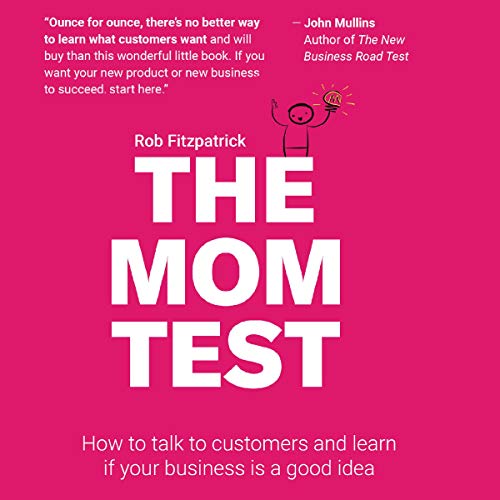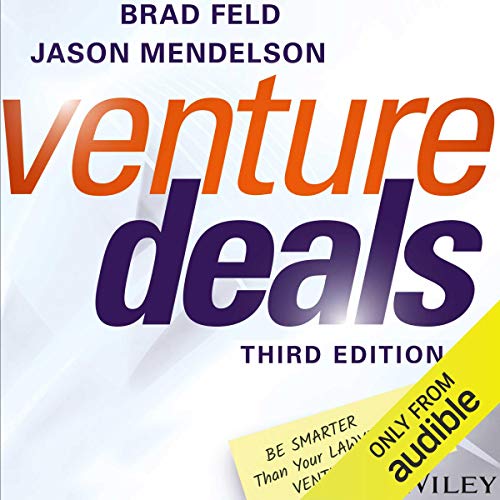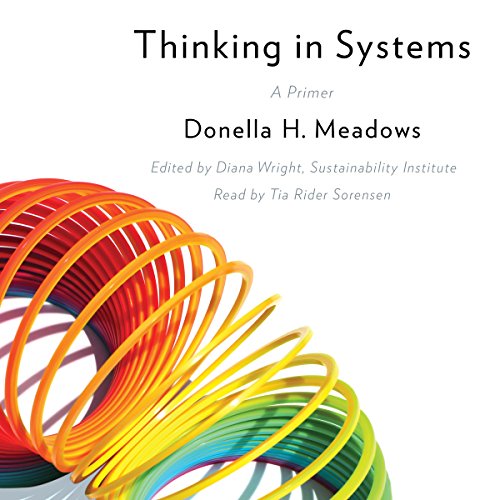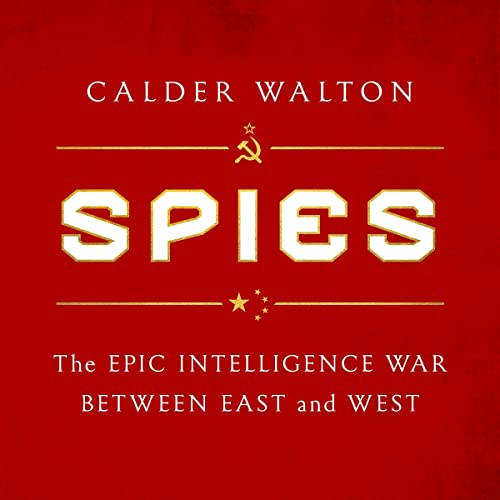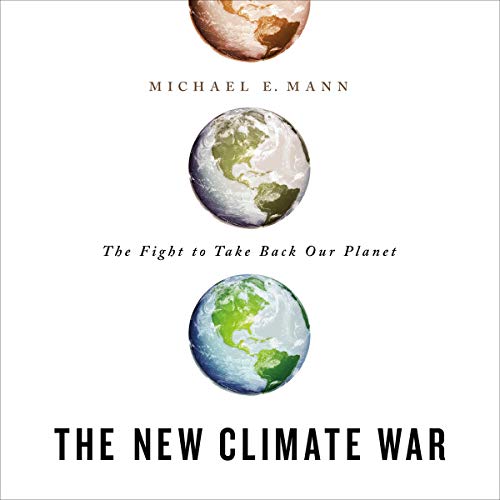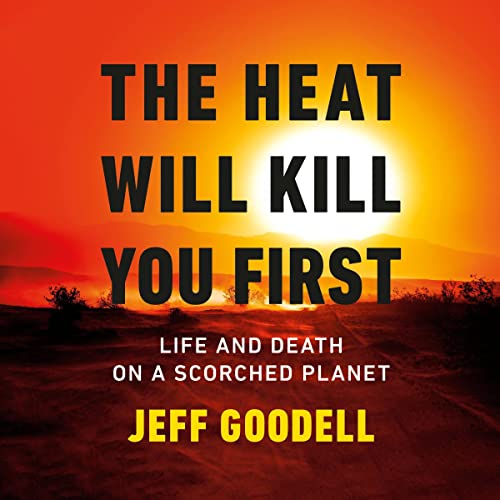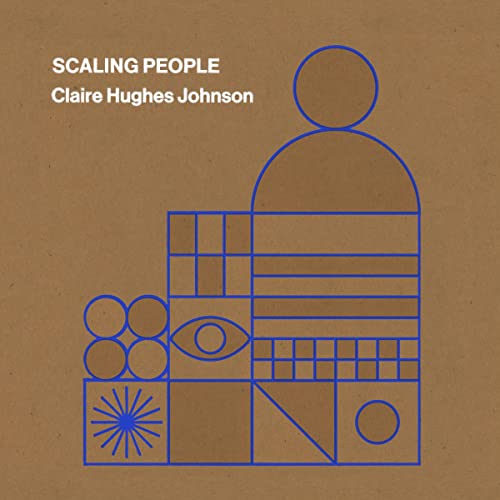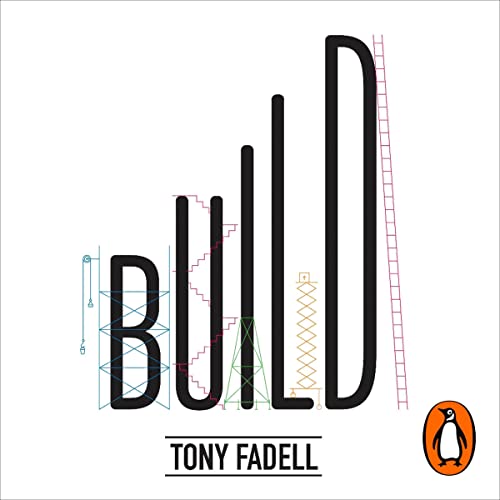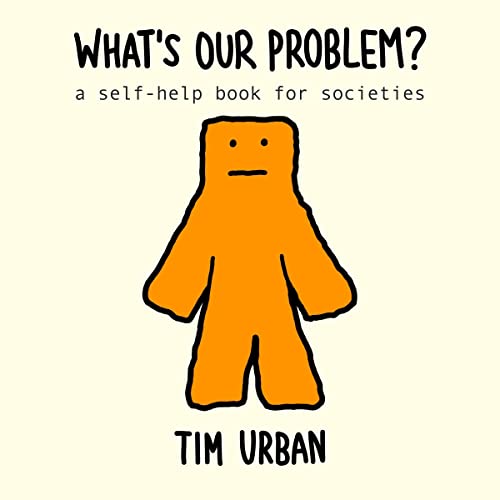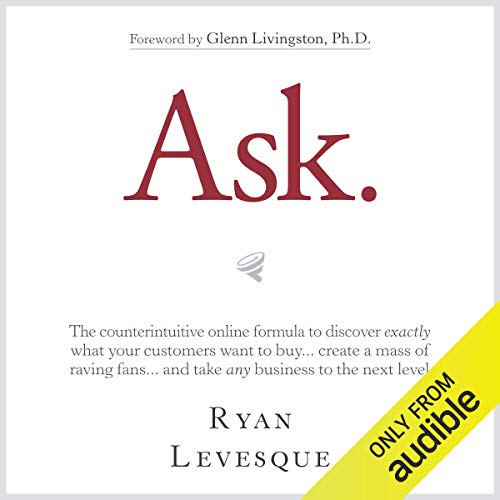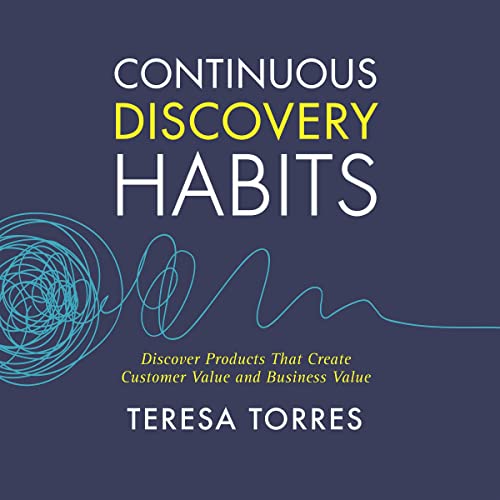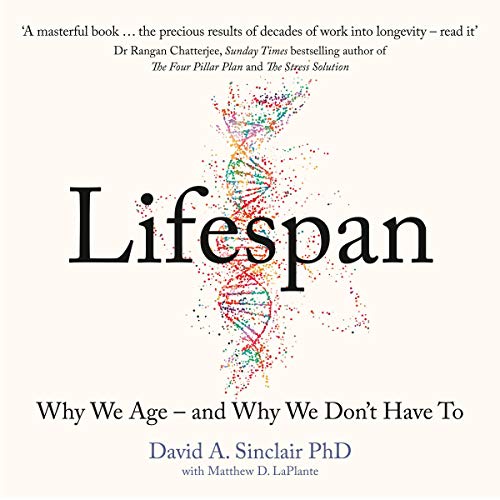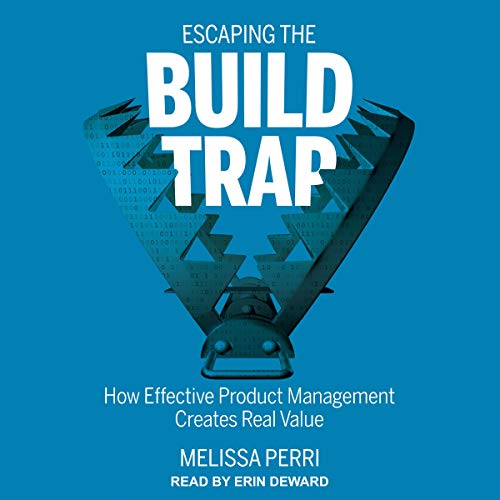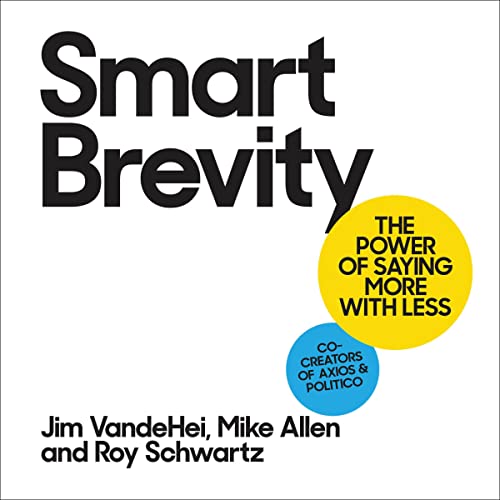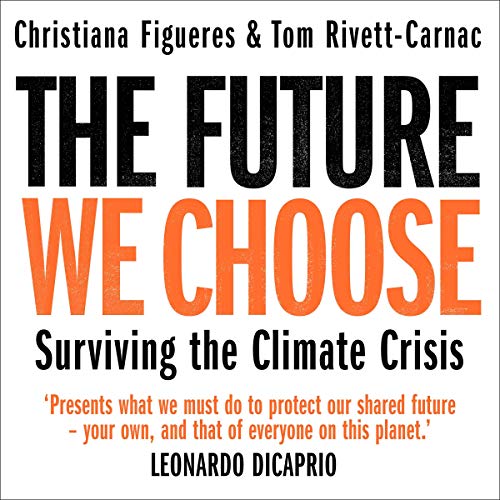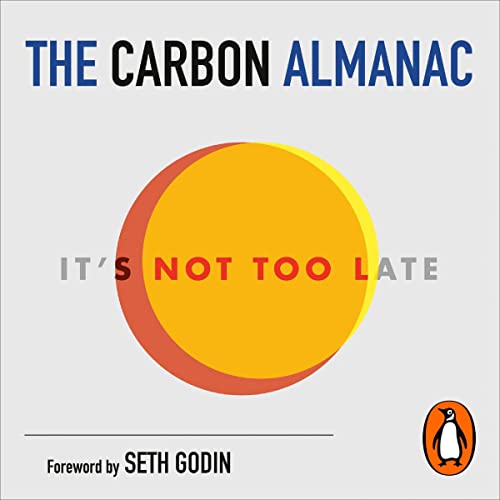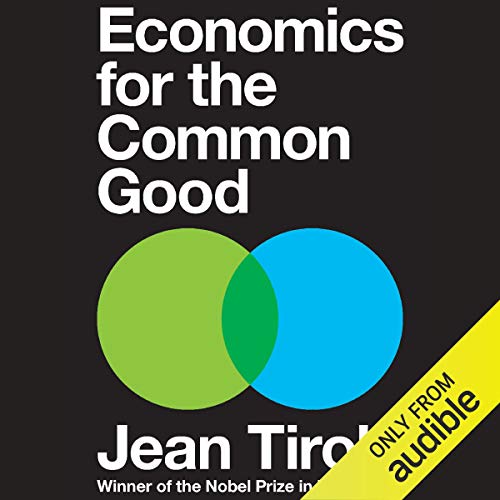JMCQUARRIE.co.uk
James McQuarrie is a UK based Product Leader who helps teams discover, design, build and deliver digital products and services that delight their users.
My 2023 reading (listening) list
These are the books I read listened to* in 2023. Listed here mainly for my own benefit, so I can refer back to the list and remind myself which I’ve read listened to and which are worth returning too again.
In no particular order:
How to Disagree: Lessons on Productive Conflict at Work and Home
Written by Ian Leslie, read by Hugh Kermode
My last read (listen) of the year, this book introduced me to the concept of “low context / high context” communication modes. Which I find very interesting as someone who’s flip flopped between the worlds of startups (low context environments) and established businesses (high context environments) many times over the years.
It’s also helped me understand that conflict can, and should, be a useful part of relationship building (professionally and personally).
As someone whose default is to avoid conflict as much as possible, it was interesting to read (listen to) how and why that is not always the best approach.
Doughnut Economics: Seven Ways to Think Like a 21st-Century Economist
Written & read by Kate Raworth
I’m late to reading this, but very much appreciate the systems thinking inspired approach to considering economics.
It’s a nice build on “Economics for the Common Good” (see the last entry in this list below), challenging conventional thinking around economic models and incorporating the idea that resources like land, air and sea aren’t “free”.
Definitely one to listen to while being able to look at the accompanying PDF full of the illustrations and diagrams being discussed in each chapter as they are referred to a lot.
The Mom Test: How to Talk to Customers & Learn If Your Business Is a Good Idea When Everyone Is Lying to You
Written & read by Rob Fitzpatrick
Every founder needs to read this before they pursue their startup idea. Anyone who’s going to be speaking with customers when testing new digital product ideas should read this too. Product Managers, Designers and Engineers - just replace “business” in the book title with “product” or “feature” and you’ll see why.
It’s worth calling out the style in which this audio book is spoken. Rob Fitzpatrick manages to read it as if he’s sitting next to you having a casual conversation about his thinking. It’s obviously a one-way conversation, but I can’t think of any other audio book that I’ve listened to that’s been read in such a relaxed style. I mean that in a good way.
Venture Deals, Third Edition: Be Smarter Than Your Lawyer and Venture Capitalist
Written & read by Brad Feld & Jason Mendelson
There is a fourth edition of this, but for some reason I listened to the third edition… It’s a nicely written, insider’s guide, to approaching and working with venture capitalists.
A little bit America-centric, as you’d expect, but not overly so. Still lots for founders at startups in the rest of the global to glean from this.
Definitely one that I’ll be returning to as we scale Glad if we need to take VC money to grow.
Thinking in Systems: A Primer
Written by Donella H. Meadows, read by Tia Rider Sorensen
This is another one I’d recommend listening to while following along with the accompanying PDF full of illustrations and diagrams. It’s a great introduction to systems thinking, something I personally think should be more widely taught.
I first studied systems thinking as part of my degree in the early 2000’s. It’s not something many people through my career have been familiar with.
If your work involves any type of strategic thinking or planning, being able to call on the concepts explained in this book will be super helpful.
Spies: The Epic Intelligence War Between East and West
Written by Calder Walton, read by Dugald Bruce-Lockhart
One of the more random books I listened to this year, with the least relevance to my work related interests, but one I enjoyed nonetheless.
It was recommended by The Economist and sounded interesting given the current global political situation we find ourselves in.
It didn’t disappoint.
The New Climate War: The Fight to Take Back Our Planet
Written by Micheal E. Mann, read by Tim Campbell
I’d label this book as a manifesto. It’s a compelling argument about how the big polluting industries of the world have been waging a 30 year campaign with governments and us public to deflect from the damage they’re responsible for and delay action on climate change.
If you’re interested in fighting climate change, and understanding why it’s taken so long for doing so to be considered a priority by so many, this is one for you.
The Heat Will Kill You First: Life and Death on a Scorched Planet
Written by Jeff Goodell, read by L. J. Ganser
Another recommendation from The Economist. Written in more of a journalistic style than many of the other books on this list, it’s an interesting collection of (mainly very tragic) stories weaved together to present a narrative about the impact of the warming of the planet.
This one isn’t quite as science heavy as some of the other climate related books on this list, but it’s still a good listen / read.
Scaling People: Tactics for Management and Company Building
Written & read by Claire Hughes Johnson
As we grow Glad this will be my “go to” book on hiring and building teams. It’s a manual for scaling.
One of the few books that I listened to this year and then went and bought a physical copy to have on my desk so I can easily refer back to it. Not the most exciting read / listen ever, but it is jam-packed with practical tactics for managing growing teams and businesses.
Each chapter has exercises and checklists (accessible via the accompanying PDF download with the audio book) that you can use in your day to day people management related work, which I thought was a nice touch.
Build: An Unorthodox Guide to Making Things Worth Making
Written by Tony Fadell, read by Roger Wayne
This book is described as “a mentor in a box”. Said mentor is Tony Fadell who lead the teams who built; the iPod, the iPhone and the Nest Learning Thermostat.
There’s a lot to like about the way it’s written and how he shares his perspective on what makes great teams succeed at building great products.
Worth reading / listening to just to learn the lessons he and his teams had to learn the hard way, and to avoid their mistakes.
What’s Our Problem?: A Self-Help Book for Societies
Written & read by Tim Urban
Known for going super deep on a range of topics over at WhatButWhy (his blog), in this book Tim Urban dives into the issues and circumstances that have resulted in the polarised world we currently inhabit.
Slightly too American-centric for my taste in parts, his arguments are compelling and well written.
An interesting read (listen) both from the point of view of trying to understand the social landscape of our time, and as a technologist who likes to think hard about the unintended consequences of the products we bring to market.
Ask: The Counterintuitive Online Formula to Discover Exactly What Your Customers Want to Buy…Create a Mass of Raving Fans…and Take Any Business to the Next Level
Written by Ryan Levesque, read by Tom Parks
This book is a playbook for figuring out what your customers want to buy online simply by asking them the right questions at the right time.
This is one of those books that I listen to / read and think; on my next project I’m totally going to test these ideas, and then fail to do so.
I think I need a copy of the eBook of this so I can follow the play by play formula on a real project as I read it step by step in the book. Should I find the time to do so, I’ll update this post.
Continuous Discovery Habits: Discover Products That Create Customer Value and Business Value
Written & read by Teresa Torres
My personal “book of the year”. Not because reading it changed my world view or taught me things I didn’t already know - I’ve been watching, reading and following Teresa Torres’ thinking on product discovery for more than a few years now - but because this is finally THE book on the topic. It’s all her thinking, all her lessons in one place. It’s the book I wish I’d had when I first switched to working as a Product Manager.
I recommend this book to every single person I meet who’d like to learn more about Product Management, both those new too it and those who want to get better at it.
I recommend this book to every Engineer I work with who’d like to improve their understanding of the product side of their role. Ditto, Product Designers.
In short, I recommend this book to anyone working in digital product.
Before this book was published I’d spend hours boring people with my inferior explanations of the value of product discovery. Now they can read this book.
If you are in any way involved with leading, designing, building or delivering digital products or services, you should read this.
I have the audio version, eBook version and a physical copy full of highlighted text and notes. I quote it regularly. This lives on my desk.
Thank you Teresa for writing it.
Lifespan: Why We Age – and Why We Don’t Have To
Written by Dr David A. Sinclair & Matthew D. LaPlante, read by Dr David A. Sinclair
The central thesis of this book is that aging is a disease that we can, and should, endevour to cure.
Not everyone will agree, but it’s a good exploration of what that line of thinking could result in.
If you’re interested in not just living longer, but actually living well for longer, it’s worth reading this and keeping an eye on some of the early science in this space.
Escaping the Build Trap: How Effective Product Management Creates Real Value
Written by Melissa Perri, read by Erin deWard
Outcomes > Output. 100% in agreement with this philosophy when it comes to product management.
Too many companies I’ve worked with have been focused on building and building and building, without understanding the impact of what they churn out, and some of those companies you’d think would know better…
This book explains why that’s not a great approach and how to avoid it.
Smart Brevity: The Power of Saying More with Less
Written by Roy Schwartz, Mike Allen & Jim VandeHei, read by Mark Chamberlin
This was recommended by one of the senior folks at Shopify; “follow these principles and you’ll be a much better communicator” was the message they broadcast to our division. Always keen to improve my communication abilities, I picked up an audio copy.
Unfortunately I’m not quite as enamored with this book as they were…
In principle the core messages within the book are sound; write less, understand your audience, summarise to capture attention and then explain your thinking, etc. But ironically for a book entitled “Smart Brevity” I found it a bit waffle-y. It read like a blog post that had been padded out to meet a minimum word count set by a publisher to justify it becoming a book.
If you’re looking for a book to help you structure your written communication, making it compelling, and “smartly brief”, I’d recommend The pyramid principle by Barbara Minto over this.
The Future We Choose: Surviving the Climate Crisis
Written & read by both Christiana Figueres & Tom Rivett-Carnac
Leonardo Dicaprio (yes, that one) summerised this nicely; “Presents what we must do to protect our shared future - your own, and that of everyone on this planet”.
Another “call to arms” book on fighting climate change. Filled with strong arguments for why now is the time to address many of the causes of climate change, and how we need to prepare for the impact of the damage we’ve already caused.
The Carbon Almanac
Forward by Seth Godin, written by The Carbon Almanac Network & read by Emily Woo Zeller
I had to look up what “Almanac” meant; “A usually annual reference book composed of various lists, tables, and often brief articles relating to a particular field or many general fields.”
And this really is that. It’s a collection of lists, tables, articles, stories and essays all seeking to document the facts about how carbon is impacting the economy, weather and wider society globally.
I don’t think it will be an annual unfortunately, but it’s a useful resource when discussing why we should be tackling climate change.
Economics for the Common Good
Written by Jean Tirole, translated by Steven Rendell & read by Jonathan Davis
I’ve never formally studied the “dismal science”, but I’ve been increasingly interested in the topic of economics as so many of the people I’ve worked with over the years have studied it and regularly refer to it’s models and concepts.
This book is a manifesto for an economics that’s less dismal science, and more a positive force for good in the world.
Conclusion
There are a few themes in there; building products, building businesses, fighting climate change and economics. Along with a couple of random topics thrown in for good measure. I didn’t plan to read around specific topics this year, but I guess my interests were fairly consistent. I’m interested to see what my 2024 reading list looks like.
My big discovery (and yes, I’m late to this party) this year was that my local library membership gives me access to audio books via the Borrow Box app. Most of the above were listened to via an Audible subscription, but I was able to listen to 4 of the above (How to Disagree, The Future we Choose, The Carbon Almanac and Economics for the Common Good) via Borrow Box too.
I wish more of these audio books were available there so they could be accessed by more people, but some is better than none.
NB
The links to each book above are Amazon affiliate links. As an Amazon Associate, I earn from qualifying purchases. So if you follow a link and purchase a copy of a book I’ll earn a tiny commission from Amazon. Just so you know…
* I’m a slow reader. Always have been. I tend to absorb information better as spoken text rather than written word too, so I’ve been listening to, rather than reading, books this year. I’ve retained more of each book this way, and I’ve been able to get through more of them in a shorter period of time too. This list is by far the longest list of books I’ve consumed in one year since I left university (and possibly longer than the list I read each year while studying too!).
